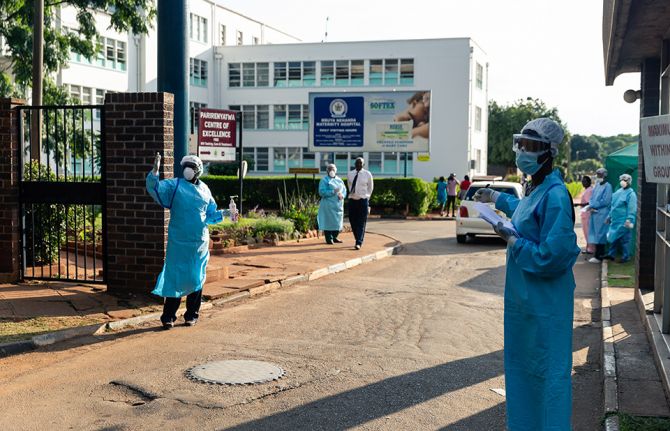

Press Statement
UNAIDS supports a temporary WTO waiver from certain obligations of the TRIPS Agreement in relation to the prevention, containment and treatment of COVID-19
15 October 2020 15 October 2020GENEVA, 15 October 2020—Today, the World Trade Organization’s Trade-Related Aspects of Intellectual Property Rights (TRIPS) Council meets to consider a proposal presented by the Governments of South Africa and India for a temporary waiver of certain TRIPS obligations in order to facilitate an appropriate response to COVID-19. The aim is to create certainty and clarity, guaranteeing freedom to operate, innovate, procure and scale up manufacturing capacities in essential health technologies at the required scale. The waiver would reduce transaction costs and eliminate key barriers across the research and development cycle and the supply chain for the access and delivery of health technologies to prevent, diagnose and treat COVID-19.
“UNAIDS fully supports this proposal, which reflects the urgency and global health emergency that COVID-19 represents,” said Winnie Byanyima, Executive Director of UNAIDS. “Its adoption will enable countries to work together to establish national and multilateral strategies to promote innovation of, and access to, medicines, diagnostics, vaccines and other health technologies.”
Global solidarity and shared responsibility have been recognized as fundamental principles that guide the United Nations system response. There is a growing consensus that universal access to health care, and to COVID-19 health technologies, must be a global public good.
In response to the colliding pandemics of COVID-19 and HIV, UNAIDS has adopted a multisectoral and people-centred approach in order to protect the gains for people living with and affected by HIV and to drive progress towards the Sustainable Development Goals. The AIDS community knows that in order to tackle public health threats a focus on inequality is essential, including inequalities in access to solutions, whether vaccines, diagnostics or therapeutics.
“We cannot repeat the painful lessons from the early years of the AIDS response, when people in wealthier countries got back to health, while millions of people in developing countries were left behind,” Ms Byanyima added. “If we continue with business as usual we will fail in delivering fair access to COVID-19 treatments for all those in need. Yet fair access is the human right of everyone, no matter the colour of their skin, the money in their pocket or the country they live in.”
A range of solutions will be needed in order to ensure equal access and to unlock supply. UNAIDS calls for support for the multilateral solutions that are on the table and for collaboration through fostering the transfer of technology and mass-producing health products, using a public health lens.
UNAIDS
The Joint United Nations Programme on HIV/AIDS (UNAIDS) leads and inspires the world to achieve its shared vision of zero new HIV infections, zero discrimination and zero AIDS-related deaths. UNAIDS unites the efforts of 11 UN organizations—UNHCR, UNICEF, WFP, UNDP, UNFPA, UNODC, UN Women, ILO, UNESCO, WHO and the World Bank—and works closely with global and national partners towards ending the AIDS epidemic by 2030 as part of the Sustainable Development Goals. Learn more at unaids.org and connect with us on Facebook, Twitter, Instagram and YouTube.
